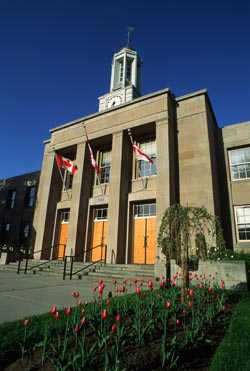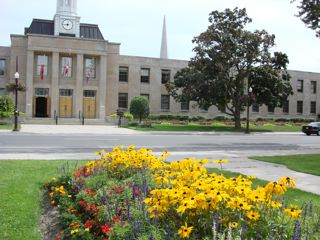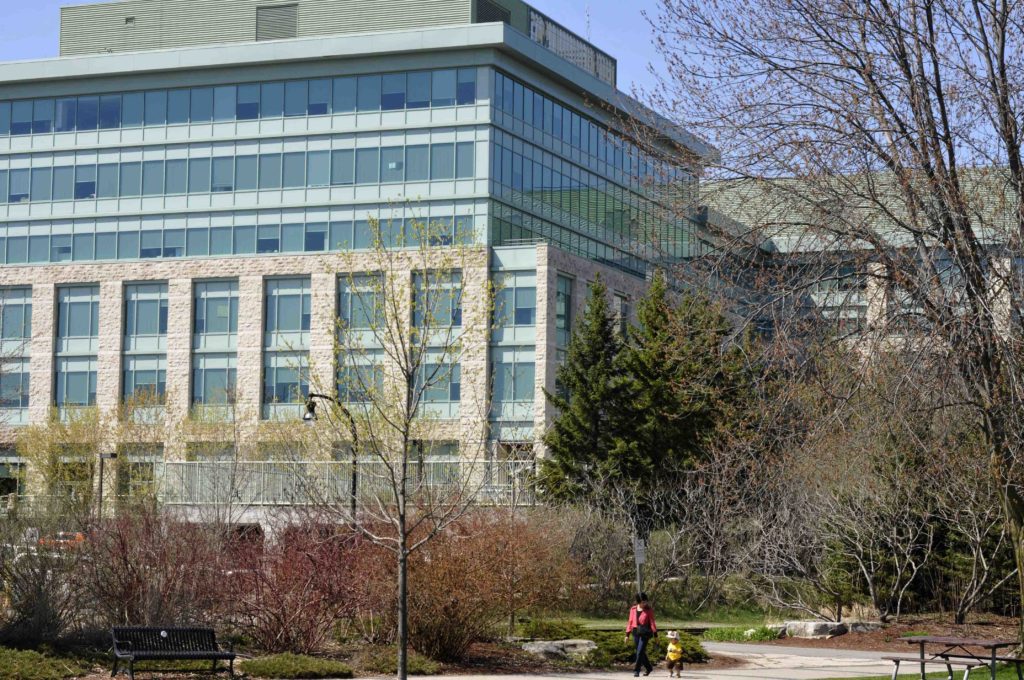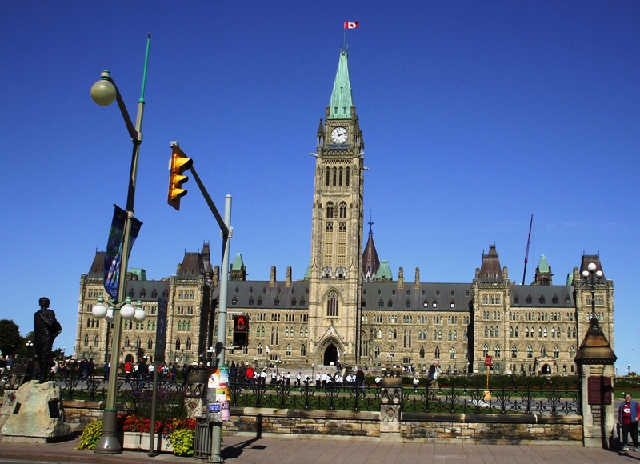Government

In Canada, there are three levels of government – federal, provincial or territorial and municipal or local. Each level of government has distinct responsibilities, but some responsibilities are shared among levels.
Any Canadian citizen 18 years of age or older may vote in elections. They may also be elected to any level of government. Information on registering to vote is provided by Elections Canada.
Information on our government can also be found in the History of Government section of OntarioImmigration.ca.
Municipal Government

Municipal governments are cities, towns, villages, counties, districts, or metropolitan regions. They are responsible for local services such as water supply, sewage and garbage disposal, roads, sidewalks, street lighting, building codes, parks, playgrounds and libraries.
Our municipal government is the City of Peterborough.
In Ontario, the head of a municipal government is either called the Mayor, the Reeve, or the Warden. The members of the council are called Councillors or Aldermen.
Municipal governments pass laws to regulate local activities within their control. Schools are generally looked after by school boards or commissions elected under provincial education acts.
Can I vote in a municipal election in the city of Peterborough?
Once you become a Canadian citizen, you will be able to vote in Municipal Elections to elect a mayor and City Councillors if you are at least 18 years old and meet at least one of these conditions:
- You live in the City of Peterborough
- You own or rent property in the City of Peterborough
- Your spouse owns or rents property in the City of Peterborough
Elections occur every four years. Any Peterborough resident aged 18 or older may run for Mayor or City Councillor.
What is a Mayor?
The Mayor is the elected leader of the City of Peterborough. He or she chairs meetings of the Council, as well as represents the City at local ceremonies, meetings and conferences.
What is a City Council?
The City of Peterborough is divided into five areas called wards. This ward map of Peterborough will help you determine your ward. Each ward elects two City Councillors to represent them. They meet as City Council to pass by-laws and establish policy within the authority of the Ontario Municipal Act. Councillors are considered part-time workers and many hold jobs outside their council position. If you have concerns about the City you can contact your City Councillors.
Provincial Government

The Premier, cabinet ministers, and all other elected members together make up the Legislative Assembly and are called Members of Provincial Parliament (MPP). There are 106 MPPs. You can contact your MPP if you have concerns about the Government of Ontario or if you require assistance accessing provincial programs and services.
The Legislature is the name of the Legislative Assembly together with the Lieutenant Governor.
The provinces’ areas of responsibility, defined in the Constitution Act, 1867, include health, child welfare, municipal government, highways, labour, property and civil rights, and education. Service Ontario can provide information on any program or service of the Government of Ontario. They have an office in Peterborough located at 300 Water Street.
Federal Government

Canada is a constitutional monarchy. It has a system of parliamentary government. Parliament has three parts: the King, the House of Commons and the Senate
His Majesty King Charles III is our Head of State. The Governor General of Canada is the King’s representative in Canada.
The House of Commons consists of all elected Members of Parliament (MP), while the Senate is made up of Senators appointed by the Prime Minister.
The Prime Minister is the leader of the political party with the most MPs. There are 338 MPs. You can contact your MP if you have concerns about the Government of Canada or if you require assistance accessing federal programs and services. The federal areas of responsibility under our Constitution include citizenship, foreign policy, national defence, currency, banking, and the postal service.
